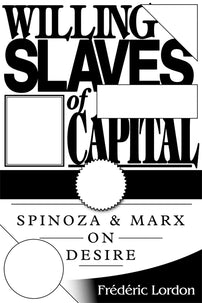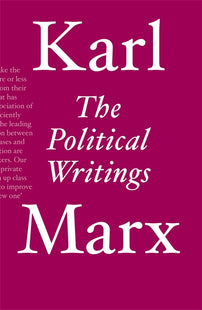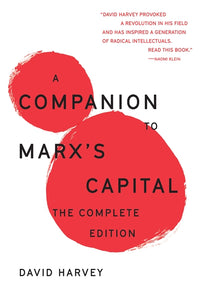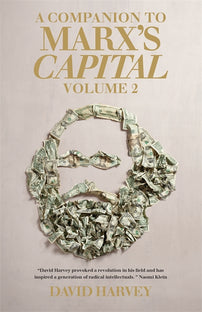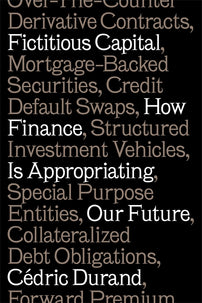‘Why are you acting the Marxist?' Frédéric Lordon on Thomas Piketty’s 'Capital and Ideology'
On 31 January, at the Bourse du travail in Paris, Frédéric Lordon debated with Thomas Piketty on his book Capital and Ideology, at the invitation of Les Amis de L’Humanité. The following text is Frédéric Lordon's opening speech, with minimal revisions. Translated by David Fernbach

Capital and ideology? So let’s proceed in that order, starting with ‘capital’. What is surprising is that you still don’t have the concept of this. You stick with ‘ownership’, but ownership is not capital... ownership, by itself, is not capitalist. Midas was not a capitalist; Louis XIV was not a capitalist -- and they were hardly poor! When you consider the successive historical instantiations of ‘ownership’ you let yourself be trapped in a false nominal continuity that condemns you to a defective ‘definition’ of capitalism.
Here is the definition you give: capitalism is ‘the extension of ownership into the age of large-scale industry and international finance’. By failing to make clear what this ‘extension’ consists of, your definition becomes a circular one. For ‘large-scale industry’ is the capitalist form of production (Capital Volume I, Chapter 15). Your definition is circular because you define capitalism by a term that is itself already capitalist. There are not a dozen ways out of this impasse, there is only one, which Marx gave us, since it is only Marx who gave us the concept of capital and capitalism, by defining capital as a social relation. A social relation which consists of three things: 1) the separation of the workers from the means of production, that is, from ownership in the strict sense; but also: 2) the separation of the workers from the products of production; and finally, and perhaps most important: 3) the profit-making vocation of ownership, i.e., the use of means of production and labour-power with a view to profitable accumulation, indefinite valorization.
It is all this that makes a machine capital. Being ‘capital’ is not a substantial quality. It is being held in the social relations of capitalism that makes a machine into capital, which it by no means is by itself. For example, the bread oven at the cooperative bakery in Montreuil is not capital, because it is inserted into cooperative and non-wage social relations. On the other hand, the same bread oven in an industrial bakery is capital. The same bread oven. Capital here, non-capital there. Being capital is not a substantial property of things.
So, there we have it. It’s an improvement over your 2014 book. You see now that ownership carries with it issues of power. That’s very good. But it’s still an achievement that’s about a century and a half old... Since 2014, and again after this book, I can’t shake the same sense of astonishment that you haven’t read Marx, at least not his economic work – you admitted as much in an interview with the New Republic in 2015 – you don’t have the concept of capital, but you continue putting ‘Capital’ in big letters on the covers of your books...
It would be wrong to think that these are just conceptual issues with no other importance: they determine very political consequences. For example, about your proposals for ‘overcoming capitalism’ through what you call ‘participatory socialism’. In so far as these words are taken seriously, your ‘participatory socialism’ in no way achieves any kind of overcoming of capitalism. If German-style co-determination –because that’s what it finally boils down to – had brought the least possibility of ‘overcoming capitalism’, German capitalists would most likely have realized this – and so would we.
That’s the problem: your discourse of overcoming capitalism remains coded in the fundamental grammar of capitalism. So no ‘overcoming’ effect follows. What do I mean here by the ‘fundamental grammar of capitalism’? Not, for the moment, its structural grammar as a configuration of social relations, but its practical-dynamic grammar, and more precisely the matter of the advance. The problem here is that, in order to produce, one must first have obtained means of production, machines and intermediate goods, and therefore be able to finance these in advance of any realization.
My cultural references are probably less distinguished than yours. I’m thinking here of François Truffaut’s film Les 400 coups, in which Antoine Doisnel, the runaway kid trying to make himself independent, plans with a friend to set up a little business – but where’s the money to come from? The two accomplices end up stealing the father’s typewriter to sell it for the funds they need – an excellent illustration of what primitive accumulation is, by the way: an original despoliation (in this case a robbery) that makes it possible to cross the obstacle of capital accumulation.
But the basic point is made in a dazzling expression of Antoine Doisnel, who says everything about the problem of the advance: ‘You know, it’s a question of money first of all’. Now, what is the capitalist answer to the ‘problem of the advance’? It’s the private financial input, also known as equity. Once you’ve said this, the rest is given. The financial input immediately determines the profit-making nature of property: you put money in, but it has to give a return! Otherwise, why contribute it?
You say that the connection between private funds and profit-making ownership is looser than that. And you draw on Julia Cagé’s work on a new way of media financing.[1] But firstly, I don’t think that her example holds, and most importantly, even if it did, I don’t think it can be generalized. When we ask oligarchs the reasons why they invest in media, we know very well the kind of edifying justification they come up with: contributing to the activity of a free press, supporting democracy, etc., in other words, perfect operations of symbolic laundering. But made possible by the fact that they drape themselves – no matter how falsely – in a ‘great cause’. Like the financiers of cultural goods and other patrons of the arts.
But this possibility can’t be extended to ordinary companies. Imagine, for example, a company that makes, I don’t know what, potato mashers, or folding chairs. From the point of view of added symbolic value, that leaves something to be desired. What are we going to offer the funding sponsor as a quid pro quo? That we’ll take his advice on the ergonomics of the potato masher? On the colour for the backrests of the folding chairs? The financial contribution is only worthwhile if it can expect some form or other of return: either the classic financial one, or a political one (for example the possibility, by buying a media outlet, of acquiring an influential tool), or a symbolic one. And if there is no return, there will be no contribution. What we have to break with is this financial contribution, which is the very heart of capitalism. As long as you maintain this logic, you will not overcome anything – at best you will mitigate, but you will not overcome anything.
All the less so when one of your proposals is to expand employee ownership. But employee share ownership is the holy grail of the stock exchange. It’s not for nothing that since the end of the nineties all leading companies have launched employee share ownership plans – it certainly doesn’t bother them too much, and it’s even in their own interest. In reality, employee share ownership is a huge scam... for employees.
First because it exposes them to a risk of non-diversification of their portfolio; their savings are entirely invested in the company’s shares... Then because it’s an ideological operation characteristic of neo-liberalism, which constantly tries to conceal the figure of the worker as producer and replace this with the figures of consumer and shareholder, looking at situations exclusively from their point of view. And finally, because employee share ownership is a machine for breaking the political unity of wage-earners. This is especially true in large companies with a number of production sites. If, for example, Renault closes its Cléon site, then all other things being equal (in particular, what workers’ solidarity remains), the employees of Flins and Sandouville will do all right. Their jobs will be preserved and their shares will rise as they do every time a company carries out a redundancy plan...
Though you say little about capital strictly speaking, for want of a concept of it, you say a great deal about ideology. You have a lot to say about it in this book, but in a very surprising way. The most striking thing is the way in which you launch yourself, full of enthusiasm, into one of the most popular social science themes of the last century and a half. And you fire ahead without the support of a single reference, without bringing in a single author! In your Introduction, there is a section on ‘The Sources Used in This Book: Inequalities and Ideology’, which is devoted firstly to statistical and historical data – unsurprisingly, this is extremely rich – and then to ‘ideology’.
But all we find here is Hayek, Trump, the Wall Street Journal, the Financial Times and a few novels. Whereas... did you know that, anachronism aside, we find lineaments of the problem of ideology already in Plato’s Republic? That in the eighteenth century, a guy named Jean-Jacques wrote a Discourse on the Origin and Foundations of Inequalities among Men? We could also cite Marx and Engels who, I believe, wrote something like The German Ideology, we could speak of the whole Marxist tradition, of the Frankfurt School, or of Max Weber, and finally of Bourdieu, precisely because he does not use the concept of ideology, replacing it with that of ‘symbolic violence’, thus going beyond the problematic of ideology but preserving it. But there’s nothing. It’s quite disturbing.
As for the substance: all you do is propose an additional turn in the century-old oscillation between the materialist position (people only ever have the ideas of their material situation), and the idealist position (ideas are autonomous and lead the world). Here you simply invert the materialist assertion and return to the old idealist position. But perhaps you should start by seeing that the idealist position is above all the ideology of the producers of ideology. ‘Ideas lead the world’ is the spontaneous ideology of petty idea producers. (I say this without meaning to be at all pejorative: I refer to Marx’s ‘petty commodity production’, and as a petty ideology producer myself, I am in the same boat.) And then it’s no big deal to continue this threadbare merry-go-round. You could at least have made the effort to go beyond it.
[book-strip index="1" style="display"]In what way? For example by saying this: men have the ideas of their affects. They form their ideas around what happens to them, around their experiences. Among these affects, there are material ones. And since these are common to classes of material existence, then for that part, to that extent, individuals have the ideas of their class. However, class ideas do not exhaust all their ideas – as Marxists painfully realized in 1914, when the French and German proletariats, who were supposed to stand in solidarity on the basis of their common class membership, instead hurled themselves against each other in a nationalist chauvinistic butchery.
So: individuals set themselves in motion under the impulse of ideas, some of which respond to determination by material conditions, and others to determinations of another nature. There is a co-presence of these determinations in people’s heads (and bodies), possibly an antagonistic one, and it is only in the actual situation that we see the resultant – contingent, conditional on an overall socio-historical conjuncture. This is why a sentence like – and I quote – ‘Political conflict is above all about ideology and not class’ makes no sense to me. And for good reason: it puts terms that are not independent in a relationship of opposition. In ‘ideology’ there are material, class and other components.
Besides, if ideas are ‘ideology’ and not ‘classes’, I’m afraid that your own thesis is weakened. Because the ideology of the moment, you say, is ‘ownership’. But those who challenge this are... non-owners. And ‘non-owners’ sounds like a class determination!
Let me summarize briefly – in fact, with a question. Why are you so keen to give yourself a Marxist appearance when there is nothing Marxist about your work? Let me be clear, it’s not a problem in itself not to be Marxist and not to write Marxist books – except of course when it comes to talking about capital... What is a problem is pretending to be Marxist when you are so obviously not. Here I am reminded of an English expression, obviously untranslatable: ‘to pay lip service’. Meaning that words come out of the mouth but don’t express any consistent thought that would correspond to them in a meaningful way – words in the air, if you like. So I ask you again: why are you acting the Marxist?
All in all, the theoretical part of your book leaves a very strange impression. In a way, you tell us: ‘After thorough research, I discovered this: inequalities are often presented as natural, but that is false: inequalities are socially produced and supported by an ad hoc discourse of justification that I call an ideology.’ Well, of course, that’s not wrong. But it reminds me of a physicist who would tell us – in 2019: ‘After extensive research, I discovered that bodies fall downward under the effect of a force that I call gravity.’ And then our physicist would write a big book of Newtonian mechanics and write on the cover ‘Theory of General Relativity’. So no, that’s not right. We’re not allowed to do that. I say this from the standpoint of the standards of the academic field, which regulate the production of scholarly statements, and which impose certain obligations. These standards oblige us not to present as a discovery something that has been established for a very long time. They oblige us to accept, at the very least, the work that has gone before us. They oblige us not to pass something off as what it is not.
I must tell you that I am constantly amazed by the reception of your book, especially in the academic field, where it has received a certain validation by default. Silence. No one has said anything. For my part – I’m offering you a thought experiment – I think you couldn’t have written a book like that in the 1960s or 70s – you would have come a cropper... Because those were years of high intellectual and political intensity, people read a lot, they were very cultured... and the atmosphere was very Marxist. So you wouldn’t have dared publish such a book. In fact, you wouldn’t even have wanted to. Because, being in the same intellectual atmosphere as everyone else, the idea wouldn’t even have formed.
What I have just said does not exhaust the opinion that can be given of your book. There are three things I have been particularly struck by and that I would like to say.
First, obviously, the scope of your statistical work is ever more impressive. The historical frescoes are assuming gigantic proportions. You’ve got us used to this, but each time we admire it more and more.
Second, there is the timeliness of your intervention in the economic situation. For a researcher like you, coming from where you come from, to start talking about things like this – even if it’s only to talk! – is very welcome. You have built up a considerable symbolic capital, and you spend it, you commit it – unlike those little hoarders who can never get enough of it, and continue to behave well in order to get the next medal, the next prize, and so on. You ‘open the box’.
Last but not least: you have moved a long way over the years, but you don’t hide anything about this. Reflexivity is the least shared thing in the academic world, where agents try most of the time to negotiate their about-turns on the sly, hoping that they won’t show. I heard you say that you once wrote or said this or that, and thinking back now you really wouldn’t write the same things. Changing one’s thinking should be the most normal, even the most necessary thing, for an intellectual. On top of that, you say so, you don’t beat about the bush with what you consider to be, let’s say, some past mistakes. I find that really admirable. You can count on the fingers of one hand those intellectuals who are capable of saying this very simple thing: ‘I made a mistake’. This doesn’t take anything away from what I said before, but I am happy to end on that note.
[book-strip index="2" style="display"][1] Julia Cagé, Sauver les média. Capitalisme, financement participative et démocratie (Seuil 2015).
